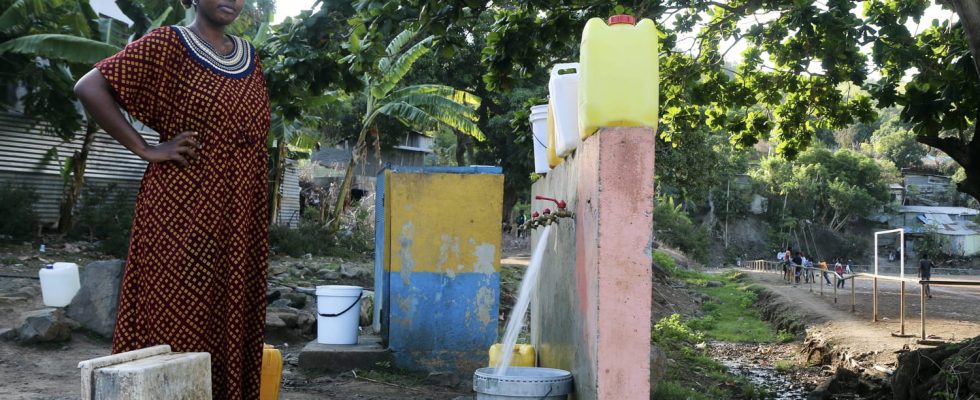Despite the 65 cases of cholera detected in Mayotte and the first death recorded, the Minister of Health Frédéric Valletoux wants to be reassuring about the epidemic situation on the island. But the NGO Doctor of the World does not share his analysis.
Despite the proliferation of cholera in the Mayotte archipelago, the Minister for Health Frédéric Valletoux was reassuring about the health situation. Guest of RTL, this Friday, May 10, he explained that the epidemic was “contained” and highlighted the work of the State and health organizations on site. But the death of a 3-year-old girl carrying the disease, recorded on Wednesday May 8 by the Regional Health Agency (ARS), aroused concern and provoked a reaction from MP Estelle Youssouffa who denounced “a shame collective, a health disaster”.
The elected official was joined by Dominique Voynet, the former director of the ARS of Mayotte, who describes a “catastrophic” health situation. Since the discovery of the first cases of cholera in Mayotte, it has warned of the saturation of the archipelago’s hospital and the local situation which allows the spread of the disease: the failures of the island’s sanitation networks as well as its lack of drinking water. Cholera is an epidemic diarrheal disease caused by bacteria and is most often transmitted through contaminated water or food. In the worst cases, this disease can kill in just a few hours due to severe dehydration.
The difficulties of certain inhabitants of the archipelago in having access to drinking water would therefore be aggravating factors which led to the death of the young patient suffering from cholera. The patient in question was a slum dweller, like a majority of Comorian immigrants who alone make up a significant portion of the 48% of the island’s inhabitants of foreign nationality.
“An adequate response”, but insufficient?
The Minister of Health, Frédéric Valletoux, however, insisted at lengthu microphone RTL on the fact that the State does not “will not abandon Mayotte” and that “the response is adequate”. He assured that 3,700 people have already been vaccinated and vaccine deliveries continue to flow. But these measures may not be enough depending there coordinator of Médecins du monde, Marion Ramstein, who explained on France Infothis Friday, May 10, that the health context in Mayotte is particularly difficult due to the water-related unsanitary crisis which affects slum dwellers and more broadly all Mahorais.
The NGO coordinator believes that the government will not be able to act effectively in Mayotte if it focuses its efforts solely on human mobilization to stem the disease “without taking into account the conditions of access to water and the barriers that prevent the population from going to healthcare facilities. On this point, the minister assured that the State will continue “water distributions as much as necessary”. Marion Ramstein recalls that cholera is a disease which with access to water and care is easily controlled, but fears that in the current situation on the island, the reopening of schools on May 13 will lead to a spread of the virus outside slums.
The first cases of cholera imported from the Comoros were detected in Mayotte in March. The first person infected with the virus was quickly treated in the cholera unit of the Mayotte hospital center. As of May 10, 2024, “65 people affected” by cholera have been identified according to the Minister of Health.
